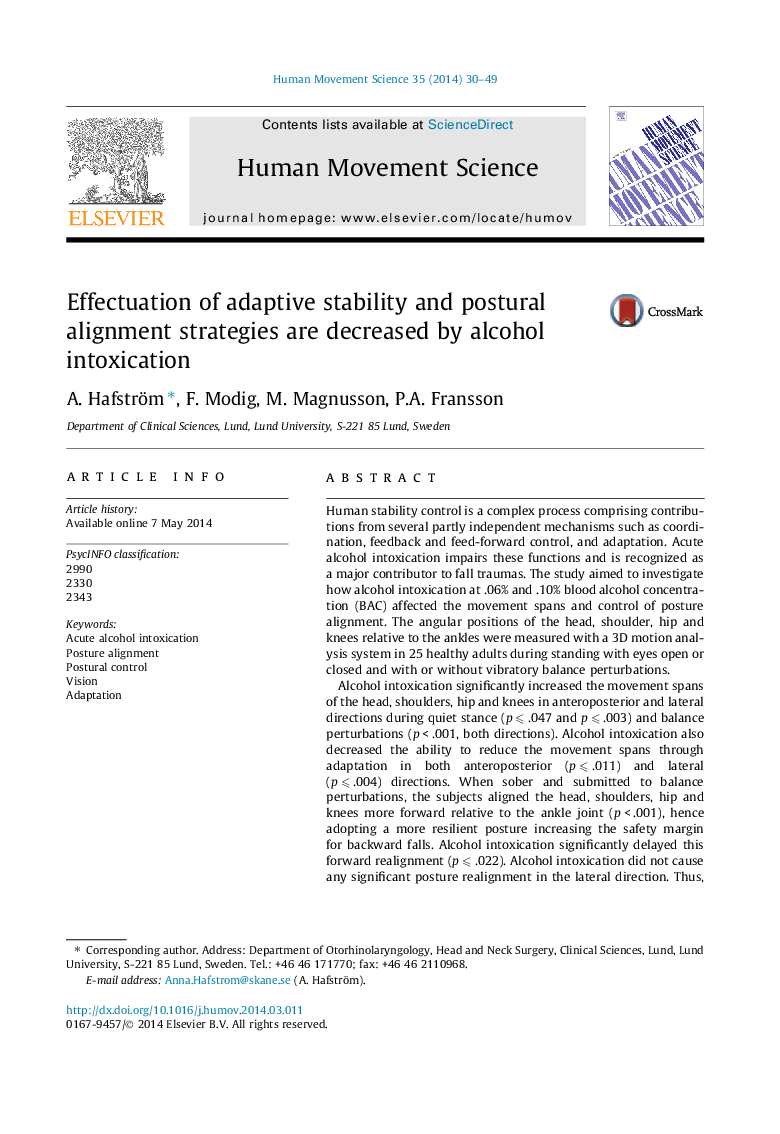| کد مقاله | کد نشریه | سال انتشار | مقاله انگلیسی | نسخه تمام متن |
|---|---|---|---|---|
| 928307 | 1474230 | 2014 | 20 صفحه PDF | دانلود رایگان |
• We investigate how alcohol intoxication (AI) effects human postural control.
• AI increases the movement spans of the head, shoulder, hip and knees.
• Perturbed or not, the most pronounced increases are in the posterior direction.
• AI decreases the ability to reduce movement spans through adaptation.
• AI delays forward realignment to a more robust posture when perturbed.
Human stability control is a complex process comprising contributions from several partly independent mechanisms such as coordination, feedback and feed-forward control, and adaptation. Acute alcohol intoxication impairs these functions and is recognized as a major contributor to fall traumas. The study aimed to investigate how alcohol intoxication at .06% and .10% blood alcohol concentration (BAC) affected the movement spans and control of posture alignment. The angular positions of the head, shoulder, hip and knees relative to the ankles were measured with a 3D motion analysis system in 25 healthy adults during standing with eyes open or closed and with or without vibratory balance perturbations.Alcohol intoxication significantly increased the movement spans of the head, shoulders, hip and knees in anteroposterior and lateral directions during quiet stance (p ⩽ .047 and p ⩽ .003) and balance perturbations (p < .001, both directions). Alcohol intoxication also decreased the ability to reduce the movement spans through adaptation in both anteroposterior (p ⩽ .011) and lateral (p ⩽ .004) directions. When sober and submitted to balance perturbations, the subjects aligned the head, shoulders, hip and knees more forward relative to the ankle joint (p < .001), hence adopting a more resilient posture increasing the safety margin for backward falls. Alcohol intoxication significantly delayed this forward realignment (p ⩽ .022). Alcohol intoxication did not cause any significant posture realignment in the lateral direction. Thus, initiation of adaptive posture realignments to alcohol or other disruptions might be context dependent and associated with reaching a certain level of stability threats.
Journal: Human Movement Science - Volume 35, June 2014, Pages 30–49
